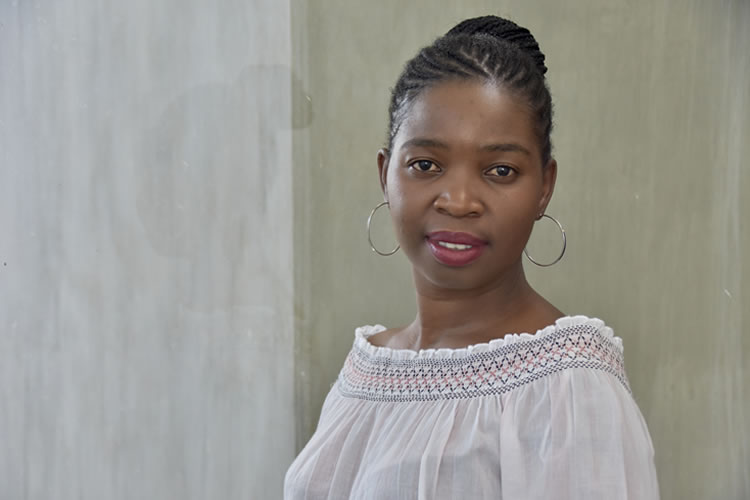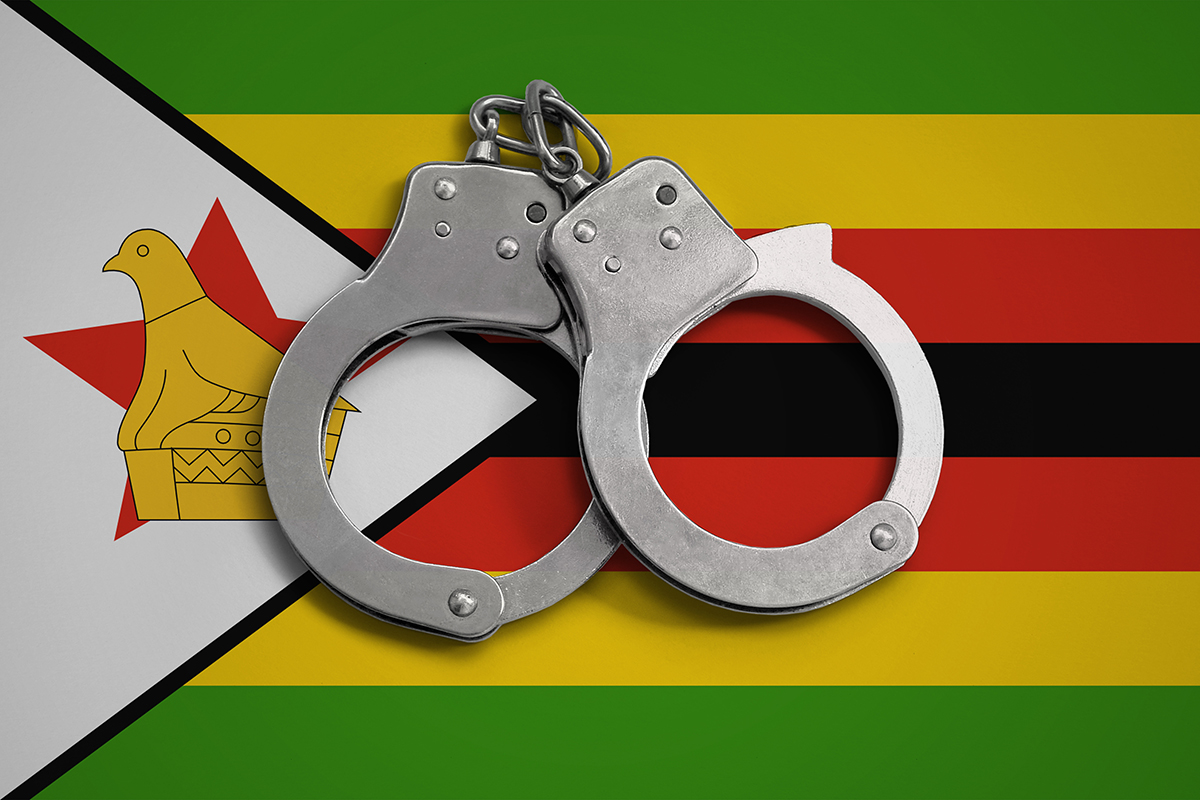The Centre for Human Rights calls on the African Commission through the Special Rapporteur on Freedom of Expression and Access to Information in Africa to urgently issue an appeal to the Zimbabwean government to respect and abide by its human rights obligations under the African Charter and other international law. This ongoing crackdown, if left unchecked, will cement the culture of impunity and entrench unwarranted arrests of journalists and human rights defenders. The Centre for Human Rights also takes this opportunity to impress upon the relevant authorities the need to respect constitutional provisions on media freedom and free expression and reiterates that journalism is not a crime, but a crucial element in the exercise of freedom of expression and an essential component of democracy that is also instrumental in fighting against corruption. Journalists and other media practitioners deserve protection.
The Centre for Human Rights, University of Pretoria, notes with deep concern the arrests of Hopewell Chin’ono (a journalist) and Jacob Ngarivhume (leader of Transform Zimbabwe, an opposition party) on 20 July 2020 in Harare. These arrests have taken place against the background of numerous other serious restrictions on freedom of speech in Zimbabwe.
Chin’ono and Ngarivhume have been using social media platforms (Facebook and Twitter) to expose and condemn corruption by public officials and political and economic crisis in Zimbabwe. They also called for fundamental reforms in Zimbabwe in order to change the country’s precarious situation. Most recently, the two had also been outspoken on social media about an impending public demonstration that is scheduled for 31 July 2020. The public demonstration is motivated by the distressed socio-economic conditions in the country. They have been charged with allegations of contravening section 187(1)(a) as read with section 37(1)(a) of the Criminal Law [Codification and Reform] Act, Chapter 9:23, which pertains to incitement to participate in a gathering with intent to promote public violence, and breaches of peace or bigotry. They have also been charged under alternative charges of incitement to commit public violence. These arrests come against the backdrop of an intensified crackdown on journalists and media personnel which has in recent months seen journalists being arrested for either journalistic activity or online expression. MISA-Zimbabwe statistics indicate that since the beginning of the COVID-19 lockdown, 19 journalists have been affected by this ongoing crackdown.
The arrest of Chin’ono and Ngarivhume is an indictment on the state of freedom of expression in Zimbabwe. Freedom of expression is a fundamental right that is firmly entrenched in international human rights law including the Universal Declaration of Human Rights, and two treaties to which Zimbabwe is a state party: the International Covenant on Civil and Political Rights (ICCPR art 19), and the African Charter on Human and Peoples’ Rights (African Charter, article 9). These arrests also undermine the rights to media freedom and freedom of expression as enshrined in section 61 of the Zimbabwean Constitution.
It is the role of the media and journalists to play watchdog and be the guardians of public accountability. The Centre, therefore, calls on the Zimbabwean government to observe the rights of journalists to report on the activities and issues that are in the public interest within the bounds of professionalism and legitimate limitations on freedoms. As established in international human rights law, the Centre for Human Rights acknowledges that the right of freedom of expression is not an absolute right and can be limited under certain circumstances but the limitation should be as determined the law, serve a legitimate aim, and should be necessary and proportionate means to achieve a stated aim.
In line with its commitments as reflected in several international treaties on media freedom and freedom of expression to which Zimbabwe is a state party, and its pledge to democratise the media and free expression environment in Zimbabwe, the Centre for Human Rights reiterates the Zimbabwean government’s responsibility and mandate to create an enabling and conducive environment for the exercise of freedom of expression instead of curtailing the enjoyment of freedom of expression through arresting journalists on the line of duty. The Centre for Human Rights also restates the position of the UN Human Rights Council under its Resolution on the promotion, protection and enjoyment of human rights on the Internet “that the same rights that people have offline must also be protected online, in particular freedom of expression, which is applicable regardless of frontiers and through any media of one’s choice, in accordance with article 19 of the Universal Declaration of Human Rights and the International Covenant on Civil and Political Rights.”
Concerning the protection of journalists, the African Commission on Human and Peoples’ Rights, the African Union’s human rights watchdog, recently adopted the Declaration of Principles on Freedom of Expression and Access to information in Africa to further clarify the meaning of article 9 of the African Charter. The Declaration stipulates that “the right to express oneself through the media by practicing journalism shall not be subject to undue legal restrictions”. The same protection applies to human rights defenders and any other individual or group exercising their rights to freedom of expression and access to information through any medium. The Declaration also calls on States to guarantee the safety of journalists and other media practitioners.
The Centre for Human Rights notes that corruption in Africa, including in Zimbabwe has permeated every socio-economic and political spectrum and is a hindrance to economic development. The devastating effects of corruption are felt across all sectors. The magnitude of the corruption particularly by public officials has been a consistent issue of concern in Zimbabwe and a source of frustration. It is regrettable that the government of Zimbabwe, through the security and law enforcement agents has been habitually infringing on the right of freedom of expression through arrests and harassment of journalists. It is the duty of the media to investigate wrongdoing particularly in the public sector that is accountable to the public. As such, the subject of corruption is an area of interest in the media fraternity.
Subsequent to the rise of prominent opposition movements, civil society and trade unions, it has become risky for the media to report on wrongdoing that implicates officials of the incumbent government or officials from the ruling party. The legal environment does not protect reporting of wrongdoing yet whistleblowing is an essential element of democracy that helps to bring to the attention of citizens of malpractices that threaten democracy and economic stability. It is in this regard that the Centre for Human Rights calls for effective protection of whistleblowers in Zimbabwe and other African countries.
The Centre for Human Rights urges the authorities in Zimbabwe take cognisance of Principle 35 of the Declaration of Principles on Freedom of Expression and Access to Information in Africa, which states that “no person shall be subject to civil, criminal, administrative or employment-related or other sanctions or harm, for releasing information on wrongdoing or which discloses a serious threat to health, safety or the environment, or whose disclosure is in the public interest, in the honest belief that such information is substantially true.” The Declaration also obliges states to “adopt laws to establish protected disclosure regimes and independent institutions to oversee the protected disclosure of information in the public interest.” In this regard, the Centre for Human Rights notes that instead of arresting those who disclose information on corruption in good faith, there should be effective legal protection for whistleblowers. Whistleblower protection is an internationally recognized practice that is aimed at combating corruption and other forms of wrongdoing. In light of this, Zimbabwe and other African states are encouraged to put in place anti-corruption frameworks that also protects whistleblowers.
Based on the situation set out above, the Centre for Human Rights calls on the African Commission through the Special Rapporteur on Freedom of Expression and Access to Information in Africa to urgently issue an appeal to the Zimbabwean government to respect and abide by its human rights obligations under the African Charter and other international law. This ongoing crackdown, if left unchecked, will cement the culture of impunity and entrench unwarranted arrests of journalists and human rights defenders.
The Centre for Human Rights also takes this opportunity to impress upon the relevant authorities the need to respect constitutional provisions on media freedom and free expression and reiterates that journalism is not a crime, but a crucial element in the exercise of freedom of expression and an essential component of democracy that is also instrumental in fighting against corruption. Journalists and other media practitioners deserve protection.
For more information, please contact:

Tel: +27 (0) 12 420 4199
Fax: +27 (0) 86 580 5743
Hlengiwe.Dube@up.ac.za


